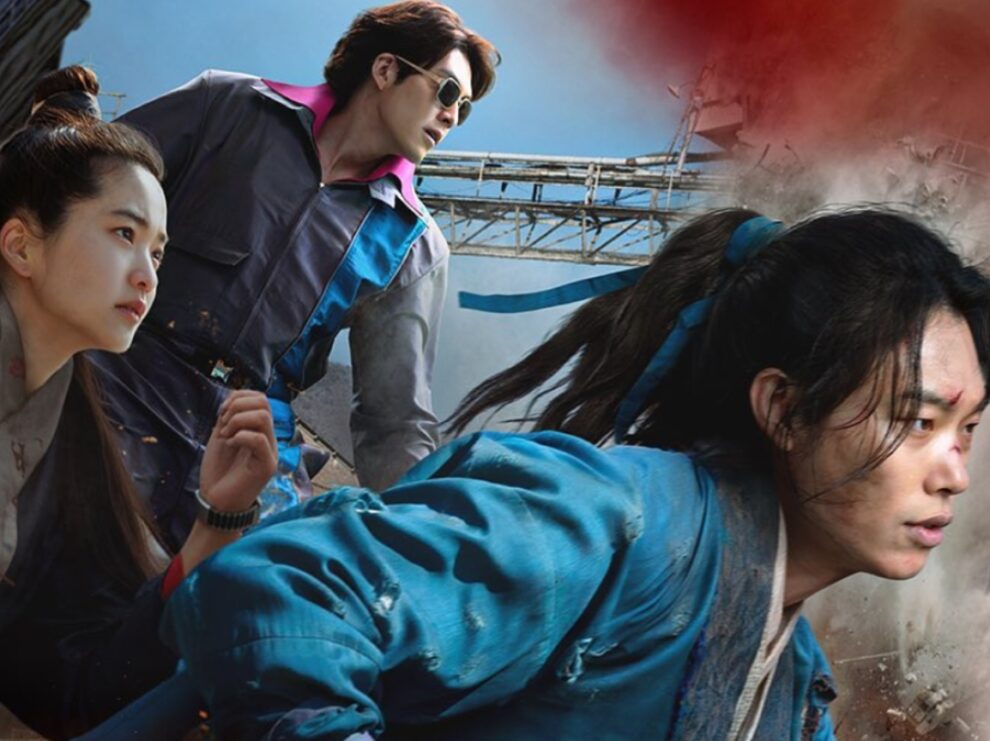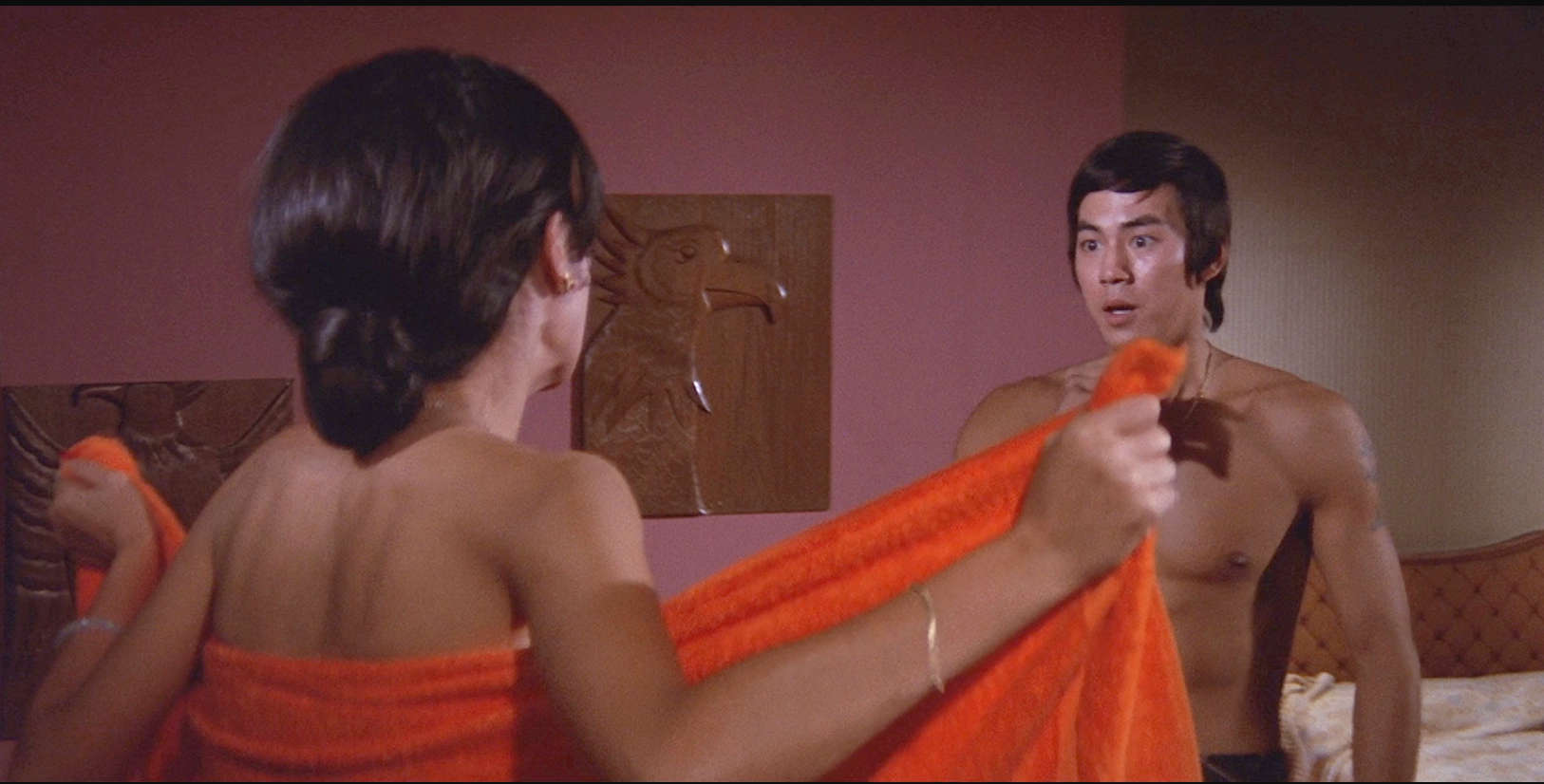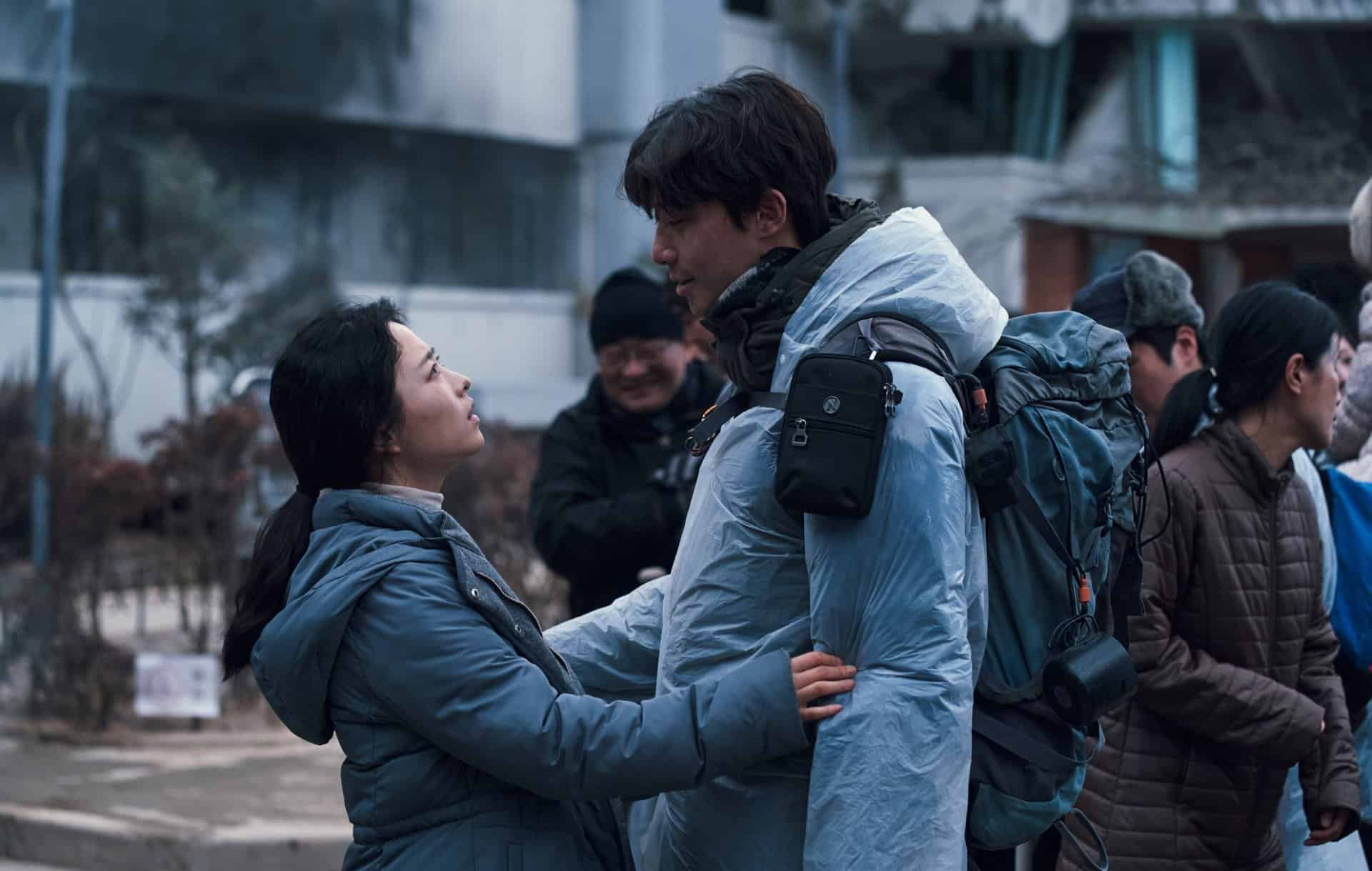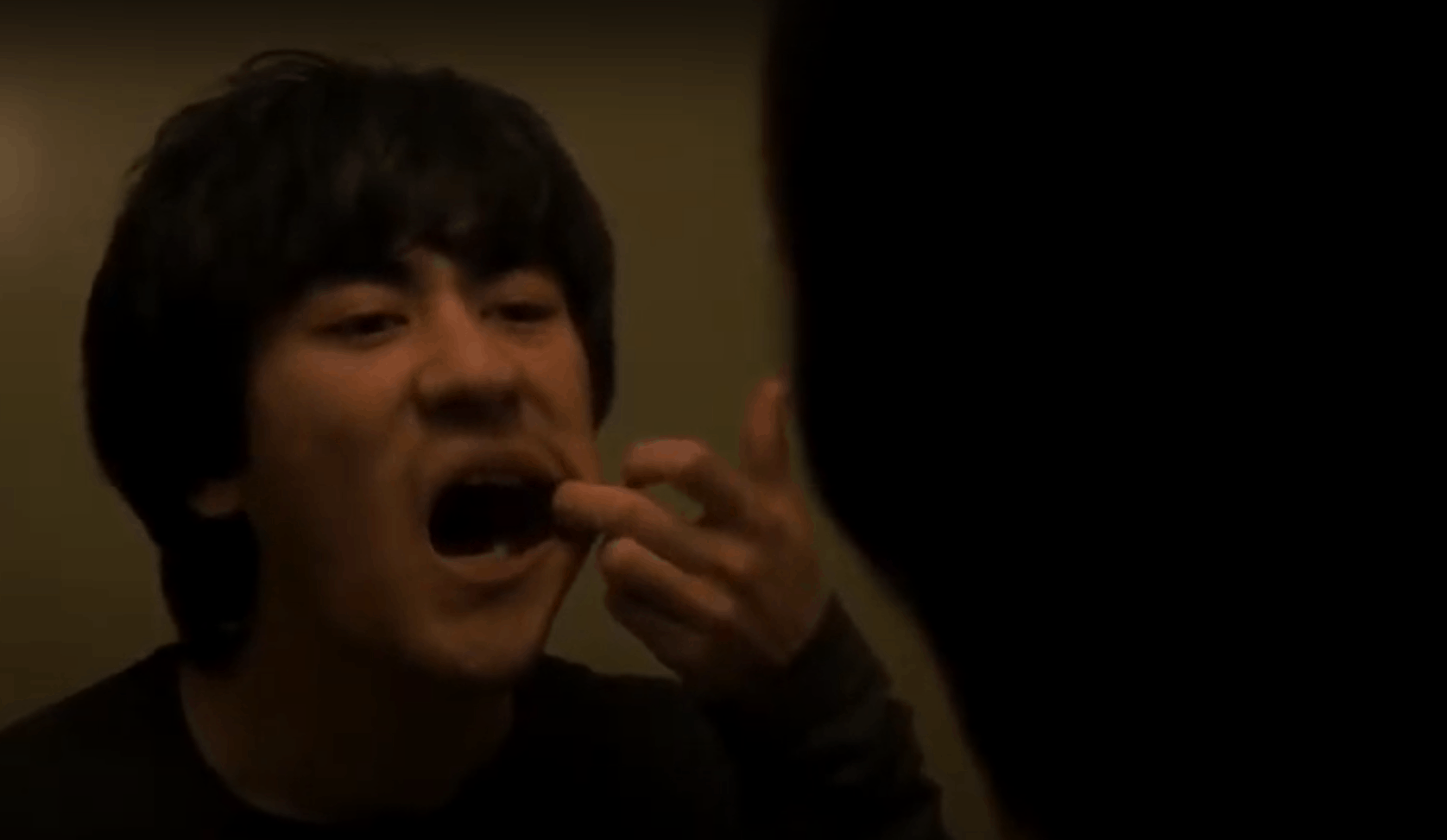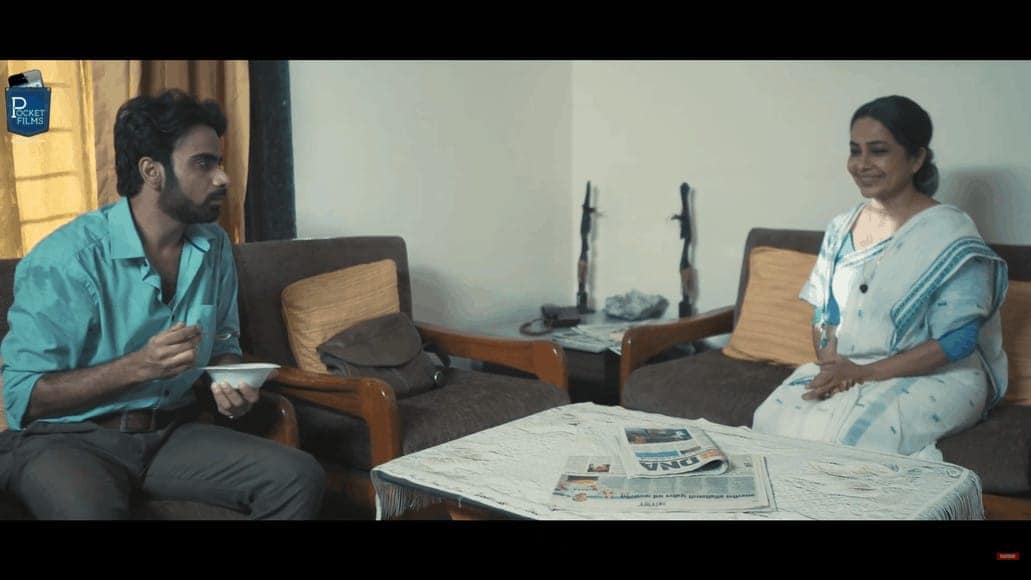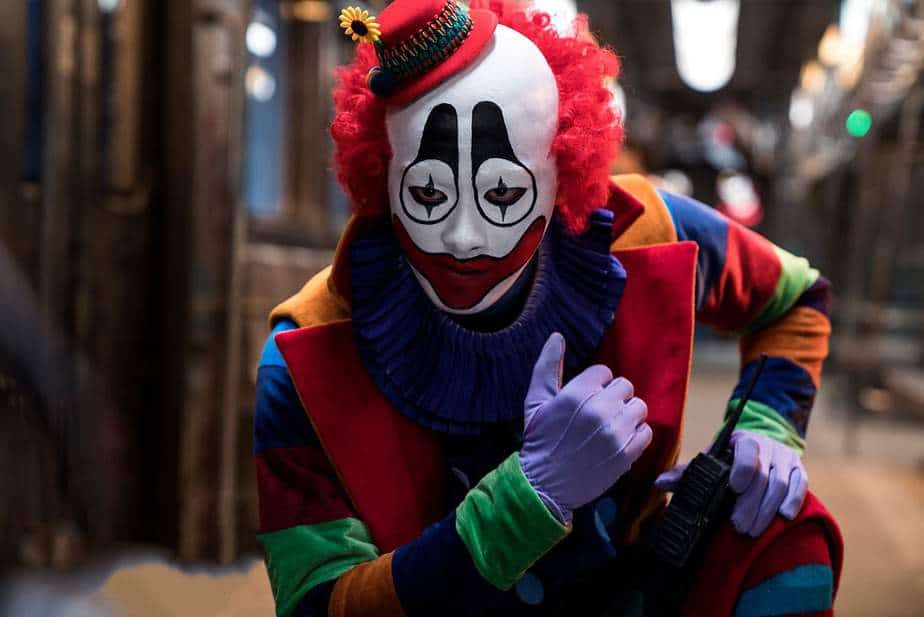Two-part extravaganzas have always been huge gambles for their creative teams. Hollywood is no stranger to shooting back-to-back sequels, from “The Matrix” to “The Hobbit” to Netflix's recent “Rebel Moon” saga, and Asian cinema has followed a similar path. John Woo split his expansive Han Dynasty battle epic “Red Cliff” in two for much of its worldwide distribution, while Bollywood's “Gangs of Wasseypur”(with its initial 319 minute runtime) has seen many iterations, first as two films, then as eight much shorter episodes for its Netflix distribution. In all of these cases, there is a gravitas that comes with the filmmaker's vision, bursting with ideas and flourishes that cannot be contained in the average one-off cinema experience. Yet with that comes a crucial hope for the goodwill of the audience, that they're willing to come back, buy another ticket and sit back down to see the conclusion of the story. Choi Dong-hoon, the creative mind behind the brazenly huge “Alienoid” diptych, has done exactly that, laying out his wares with 2022's “Alienoid” (known more accurately in South Korea as “Alien+Human Part 1”) with a messy but fun-loving blend of magic and science-fiction and then swiftly releasing a sequel full of enticing developments and promising twists as one of 2024's first blockbusters. With “Alienoid: Return to the Future”, has he given audiences a good enough reason to return to the theatre?
Alienoid: Return to the Future will be released January 26 (In Theaters Only), courtesy of Well GO USA
This concluding instalment begins with a helpful recap for anyone whose memory of the first is a little hazy: an unnamed species of slithery, villainous aliens have been imprisoned in the bodies of unsuspecting humans, and are supervised by a team of nanotech androids named Guard and Thunder (both portrayed with great range and charisma by Kim Woo-bin and voicework by Kim Dae-myung). Their time-travelling adventures see them simultaneously try to prevent an earthbound apocalypse in the 14th and 21st centuries, where the big bad extraterrestrial known only as The Controller is determined to find an immensely powerful weapon (the Divine Blade) and release a poisonous orange gas across the world that will terraform our planet into theirs. They are aided (and sometimes hindered) by Kim Tae-ri's Yi-an (a gun-slinging time-traveller sporting the impressive nickname ‘The Girl Who Shoots Thunder') and a motely crew of Taoist monks and sorcerers, whose bafflement at this strange cosmic phenomenon forms an amusing counterpoint against their effortless grip on reality-bending magic.
“Part 1” ended with the loveable Mureuk (Ryu Jun-yeol) falling into a coma as Guard and Thunder get trapped in the 14th century, and suspicions begin to rise about Mureuk's true identity in a world where no one can be trusted and anyone could be a threat. It's a great finale to a mixed bag of an introduction to Choi's world, flipping the table as its two disparate styles finally intersect in a satisfying and adventurous action sequence where sparkly sci-fi and full-blown magic duke it out for the fate of the world. The pace gained in the final 30 minutes of “Alienoid Part 1” justifies its choppy narrative structure, and any sceptics of Choi's approach are corrected by his kinetic, highly entertaining mix of fantasy genres and textures.
It is a real shame, then, that he ends up repeating the same mistakes of the first chapter. Instead of getting swept up in the momentum of “Part 1″‘s excellent third act, the story sputters as it splits up its characters once again, leaving our heroine Yi-an (Kim Tae-ri) off on the quest to find the glowing Divine Blade and our comic relief (Yum Jung-ah and Jo Woo-jin as the eccentric Sorcerers of Twin Peaks) tending to an ailing Mureuk as the forces of evil from the sinister Secret Temple form an alliance with the body-snatching aliens. With Guard and Thunder missing and presumed dead, the stakes are higher and the threat more severe as the heroes' high-tech guardians are gone, so all that's left is for Choi to keep up the pace.
Rather disappointingly, the focus settles for long stretches on two additional characters across two separate timelines, filling in blanks that no one even assumed were blanks from the first film. The blind swordsman Nong-pa (Jin Seon-kyu) is a nice tribute to the iconic samurai Zatoichi, yet his presence only serves to pad out a cluttered story, and his last-minute link to Lee Hanee's Min Gae-lin is a thin excuse to justify the reappearance of a side character who was already out of place in the first film. Because Choi shot this mammoth four-and-a-half-hour story in one block of shooting over thirteen months, there was perhaps very little room to finetune which pieces didn't fit between the two parts, so the overall picture is one that haphazardly links threads from the first act of the first film to the third act of the second film with a lot of effort, often getting in the way of the stronger genre-blending elements. At the end of the day, it speaks volumes that, for all of its ill-disciplined pacing and sideplots, it still finds time to engineer emotional beats around a character called Dog Turd.
Check the interview with the director
By the time “Alienoid Part 2” delivers on its promise and finally returns to the future at the end of its convoluted second act, many may feel exhausted by going through the same motions that the first film did, but in a less engaging way. That being said, the sequel's third act is a pleasant inverse of the first film's alien invasion of the past, where our magical characters bring a refreshing wuxia element to the modern day big city. Some fish-out-of-water comedy hits like a breath of fresh air with Yum and Jo's sorcerer double-act attacking a news report showing a group of aliens on a treadmill television, running in one spot as they smash expensive gym equipment to smithereens. As with “Part 1”, they are comfortably the highlight on a performance level, gradually getting more and more central to the story as their box of magic tricks and paper charms proves surprisingly effective against their tentacled enemies.
The no-holds-barred finale sees a car chase give way to a carriage-hopping brawl on a cargo train that culminates in a mutant alien showdown in an abandoned power plant, and while this film's status as a disappointing part two still stands, it's tough not to be taken away by how much fun Choi has pitting alien against wizard when he lets rip. The boldness of a Roy Orbison needle drop in the film's closing sequence is also unexpectedly moving, recontextualising ‘In Dreams' in a fun new direction. Choi does leave the best until last, just like his backloaded first film, but a weak opening followed by strong ending is often more fulfilling than the other way around.
Whether or not the “Alienoid” story required two films to tell itself is up for debate. Its time-twisting paradoxes and body-snatching antics add some intrigue to a fairly standard nanotech-and-laser-beams sci-fi actioner, and the confident inclusion of mysticism and spellcasting to this type of fare works better than one would expect. The visuals remain mostly slick, making the most of its 40 billion won budget (around $30 million), and Jang Young-gyu's score is pleasingly cheesy (and unafraid to use wailing guitars at regular intervals), forming a decent experience for IMAX theatres around the world. Its problems lie on the page, with a lumpy story overpopulated with characters that have miraculously survived the editing process from the first draft. Both films stand alongside one another as similar experiences with similar problems that arise as similar times, and this is certainly the product of powering through and making two films in one shooting block. If Choi chooses to return to this level of bombast again, he'll be well-equipped with the action chops he needs to deliver a fun feature. But without a stricter, tighter script to work with, there may not be much reason to return in the future.


